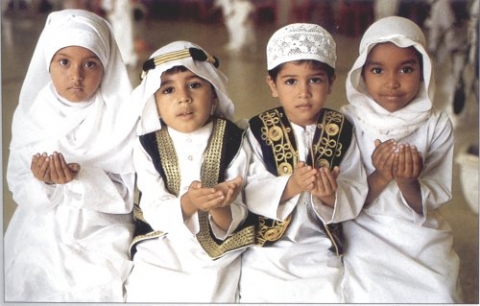
The special of the journal, No. 4, 2022, will look at the correlations of fertility with religiosity, religious identity and religious institutions.
Current changes of fertility in the world are usually characterized as demographic convergence, as contrasts in number of children, age of first marriage and child bearing, and proportions of childlessness become weaker across different continents, countries, ethnic groups and confessions. During recent decades the developing world has significantly approached Europe and North America on key parameters of fertility. Many accounts for these changes have been proposed, commonly grounded upon economic growth, changes in gender relations, value shifts under globalization and decline of traditional family institutions.
The central problem that this special issue will explore is whether and to what extent religion can affect fertility in today’s world. Specifically, contributors are invited to discuss whether religion can slow down or complicate the mentioned convergence process. A uniform answer is hardly possible. Cases have been reported when population groups of different confessional adherence in the same country demonstrate clear contrasts in fertility level and family practices (e.g. Muslim population of India and of some countries of Sub-Saharan Africa has higher fertility and lower mother’s mean age at first birth than native population of other religious adherence of those countries). However, there are also many examples of rapid narrowing of cross-religious differences in fertility (e.g. between population of Roman Catholic and Orthodox versus Protestant origins in terms of out-of-wedlock fertility proportions).
Although the special issue will mostly focus on Russia and other former Soviet countries, we also welcome studies dealing with other parts of the world. Authors are encouraged to submit papers based upon empirical studies on particular countries, regions, communities of special interest, etc. Both quantitative and qualitative studies will be considered.
We welcome submissions on a wide variety of topics including, but not limited to, the following:
- Does individual of family religiosity affect fertility decisions?
- What are factors supporting or downplaying differences in fertility between people of different religions?
- To what extent the position of religious leaders and institutions matters in issues of family and reproduction?
- Do fertility attitudes of the migrants change in a host country with different religious background?
- How efficient are religious prohibitions of certain practices such as abortion or out-of-wedlock fertility?
Please submit your paper proposals (about 200-250 words) in English or Russian and a short CV before May 1st, 2021 to the Guest Editor of the issue Konstantin Kazenin, Russian Academy of National Economy and Public Administration, at kz@ranepa.ru, with a copy to the journal’s Editors at religion@ranepa.ru. The accepted papers are expected to be submitted by October 31, 2021 for further blind-reviewing process.

